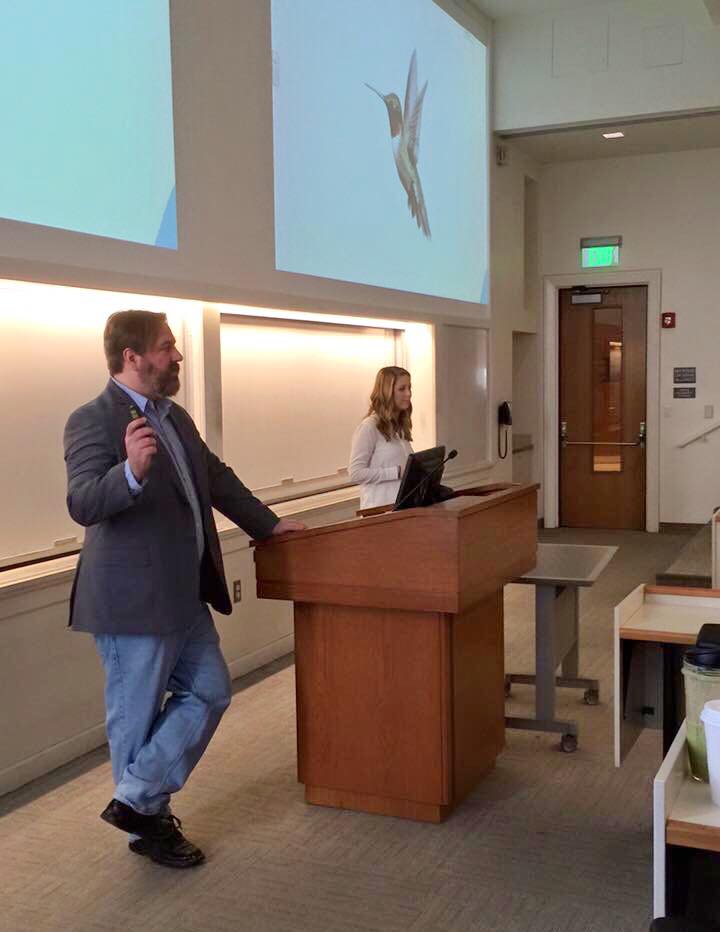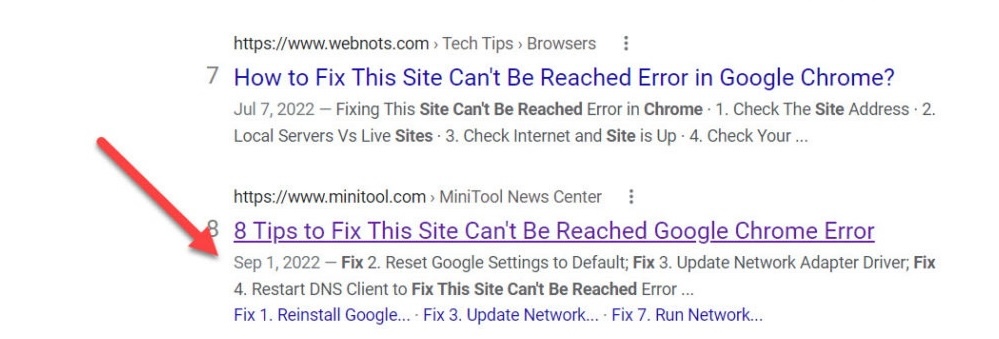47 Great Beginner SEO Questions and Answers
 Twice a year, I lead an SEO class for the brilliant students of Drexel University’s New Media Marketing class. After each session, I field follow-up SEO questions and answer them for the students. This article is a collection of those SEO questions and answers.
Twice a year, I lead an SEO class for the brilliant students of Drexel University’s New Media Marketing class. After each session, I field follow-up SEO questions and answer them for the students. This article is a collection of those SEO questions and answers.
Is there any way for a company to predict the success of their SEO strategy?
Google and Bing make hundreds of unpredictable changes a year. Rankings are often dependent on how aggressive your competition is – that’s an unknown variable as well. The demand for a product or service is always changing. Like all marketing activities, there’s no guaranteed return for investing in online search. However, with the preponderance of search data available, you can do some reasonable forecasting to determine the potential value of SEO for your company.
SEOs tend to respond with forecasting based on historical seasonal data, trends (www.google.com/trends is a great resource), and a deep understanding of competition efforts (typically determined by watching competitors closely). While it might be more of a directional hypothesis than a prediction, it can help us create goals worth reaching towards.
One thing in SEO – we should never use the word promise. Unlike other more measurable and predictable channels, SEO is quite different in this regard.
Are there any means of determining what aspects of the SEO strategy are more successful than others?
As a digital marketer, you can measure the historic success of your work in several ways. One of those ways is by examining key SEO metrics. The SEO industry is fantastic – many are willing to work with each other to answer questions such as this (while balancing NDAs and company secrets of course). While you’re active or wrapping up a strategic campaign, many things can be measured. Did page traffic from organic search grow? Was there a general improvement in visibility via rankings? Did conversions improve?
Often times you can make a direct correlation between your efforts and natural search success. Though sometimes, it’s a tweak elsewhere on the site that has a positive ripple effect improving specific goals. As well, Google can make an undisclosed algorithm change that simply gives you a lucky boost or demotes your natural search competitors. Sometimes you can’t find an absolute measurement. Like many things in marketing, sometimes SEO is more of an art than a science.
Which of the SEO tactics are more important to focus on when building a website?
How do you ensure your customer is able to find you? By making sure your website is optimized for search engines (this includes visual search optimization), Google will promote you to the top of the SERPs. You need to pay attention to your SEO from the start.
SEO is something you want to consider in every step of the development process. Typically building a website begins with a heavy focus on technical SEO (ie., URL structures, code base, tags), leading into contextual SEO (keywords, content creation). Once you have a crawlable site with good content, you begin the third and fourth part – link building / PR, and conversion rate optimization.
While some tactics have more power than others, it’s all important. Each piece in aggregate is how you improve your rankings over competitors.
How can you be sure you have considered all the possible keywords someone may reasonably search?
While there are great tools to help discover related keywords and provide estimated search counts and other metrics, you cannot be sure you have considered every single keyword. There simply isn’t a tool that provides every keyword ranking option – but these tools do tend to provide the most commonly used keywords.
Normally as you improve with the skill of keyword research, you become more efficient at finding the best, most valuable keywords quicker. You have to make a determination where the cut-off point is for your client. Does it make sense to spend 5 additional hours finding a few terms that may never draw any traffic? Probably not.
Are SEO consulting companies creating content for clients to best optimize search results?
It depends on the company. Some SEO companies perform all of the SEO from A-Z like Greenlane, while others just focus on link building, or providing advice, or only content creation. Sometimes we have clients that have the resources in-house to write, but just want the guidance on what to write about and how to optimize that content for search engines.
Just like the needs of clients, many SEO companies can be quite different, for better or worse.
Does viewer activity (for example, time spent on a website) affect search results?
Google has said they do not consider user metrics. Possibly because spammers could create bots to inflate those metrics. Logically it makes sense that the more a page gets visited, and the more engagement a website has, the more Google would want to rank it higher.
With that said, there are many SEOs who perform tests that suggest Google does factor in user metrics. Some examples:
https://moz.com/blog/the-2-user-metrics-that-matter-for-seo
https://moz.com/blog/traffic-engagement-metrics-their-correlation-to-google-rankings
At a few conferences last year, Rand Fishkin of Moz.com asked the audience to search for a keyword and click on a result (that most people saw towards tenth ranking). Within a few hours of the group doing that, the low ranking page was ranking #1 for a few hours. That certainly suggests Google uses the activity as part of their algorithm.
One challenge with SEO is that Google is quite secretive. Some accuse Google of blatantly lying to the industry. One thing I believe all SEOs agree on; while Google is willing to put some pro-SEO advice and information out there, it’s often very vague.
Is SEO getting involved with mobile/tablet apps?
Absolutely. Mobile SEO is a complete concentration in and of itself. Google is very focused on making better mobile search experiences, so SEOs must learn and practice mobile SEO to be effective marketers. Google now ranks desktop sites based on their understanding of the mobile website.
To increase awareness for a new brand, would local SEO be beneficial first before increasing SEO on a larger scale?
If the company is a local company with physical locations, local SEO is a great entry point. You can get quick wins and kick off some awareness momentum. If you’re a company that sells SaaS solutions nationwide, then local SEO is likely ineffective. Or at least a very small part of the total traffic.
What recommendations would you give to someone starting up a business with their SEO strategy?
Perform SEO as often as possible, but be very patient. Measure everything, so when you repeat your steps you are armed with the knowledge of knowing what works and what doesn’t.
Focus specifically on what works and create your own opportunity. Once you find success in a niche, you can start expanding/competing in other more competitive niches. This is one reason SEO takes time. But you should never start a business and expect to take on the big dogs immediately with SEO. Instead, you should find areas the big dogs aren’t focusing and make some money there.
Have you seen any errors in the analytics of web activity?
Yes, more often for larger clients. Google Analytics (through the web interface) interpolates its data to save on their own internal processing budget. It’s common to see data that has been rounded up or down with companies that get millions of visits a week. But for free, Google Analytics is still an incredibly valuable tool. Often times exact data points are not needed – a company runs quite fine with “very close to accurate” data.
What do you think is more difficult, researching the right keywords or getting people to actually click on your link/website?
There are so many results that a user could potentially click on. To shine within a sea of search results is a marketing challenge itself. Finding the right keywords gets easier, but standing out in the crowd of search results is at the heart of traditional marketing. It can be quite difficult to encourage the click. You need to always be learning about your searchers.
Does Google Hummingbird use previous searches to fortify their search engines and accuracy?
From my understanding, yes. The Hummingbird update heavily considered common intent of keywords. Rather than looking for exact-match keywords, Google now attempts to understand the intent behind a user’s query and finds pages that match that intent. Google also has machine learning enabled, which is certainly evaluating previous searches to improve their accuracy.
What are some reasons to improve the loading speed of your website?
- Site speed is a ranking factor.
- Fast sites are easier to crawl.
- Fast loading sites have higher conversion rates because people enjoy the experience.
- It reduces bounce rates.
- It improves the general user experience.
When you are doing local SEO, does the content you create differ in comparison to the content you would create for a national brand?
Usually, local search is abundant with heavily geo-focused content. If you have a fine-dining restaurant in Philadelphia, your content may be about the uniqueness of your food in contrast to the other local restaurant competitors (for example) – not necessarily against the food of big fast food chains. That typically leads to more local conversions. That’s not to stop a local company from attempting to be the premier authority on gourmet food around the country. The latter could earn links and engagement – thus improving your overall SEO – but may not lead to local foot traffic. It’s really a decision made by the marketer and company.
How does the Google algorithm “understand” when other website owners are being paid, or they have a mutual relationship?
Google wants links to be editorial in nature. So Google’s algorithm tries to look for footprints. If they see a link for “Best Dog Kennels” on the sidebar of a website about motorcycles, that’s a flag that the link was unnatural. In the last few years, Google has misevaluated many websites – there are certainly casualties (and you can read about many in Google’s Webmaster forum boards where users have lost their livelihood because of false penalization). But Google more often gets it right, and the search results have become better for it.
Plus, Google also has hand editors they can dispatch when they need a more human review.
How long does it typically take to make a noticeable impact on a client’s SEO?
It depends on the change, the competition, whether there are any penalties, and the equity (or perceived value) of the page and website as a whole. Once a page is crawled and processed, ranking changes happen quite quick (I’ve seen as fast as 15 minutes).
For example, if you have a website about the best credit cards – of which there are hundreds of affiliate sites already ranking – a small change will probably have no effect. You’d likely have to chip away in this space for months. On the other hand, if you have a local plumbing business in a town of 3 plumbers, a small change will likely have a much bigger change in rankings.
How do you keep up with all the SEO tools? How do you select which ones to use?
The right SEO tactic can be a huge timesaver, helping you dodge common traps and build beyond the limits of your personal experience. But there are so many SEO tools and so much digital marketing news published in blogs every day that you could waste a whole day just reading them. Select the right SEO tools simply through thoughtful analysis and testing.
What is the biggest challenge you have encountered in your job?
Convincing business owners to understand that there are no guarantees in SEO, but SEO is still worth the investment and gamble. Not to mention that SEO can take a lot of time to reach its goals – possibly more than a year. Most decision makers don’t want to hear that, but smart ones understand the playing field.
Would an SEO assist in copywriting or coding or are they solely responsible for analysis and the copywriting/coding functions would be contracted out to others?
An SEO can assist in copywriting and coding (often depending on the client and how open they are to let others touch their code and content), but it is not required. However, to be a full stack SEO, it’s vital to have all those skills.
How do you decide whether to link users to the home page or a specific product page?
Relevance is key. If someone is talking about antioxidants, then a link to a website’s antioxidants page is more relevant to a link to the homepage. Google will pass more value through a link that is more relevant. So, we urge others to link to the most relevant page that SEOs are trying to promote.
How do you stay informed about Google’s “SEO” updates?
Google tells us very little, but there are great blogs that track the industry. A few I check every day:
• https://moz.com/blog
• https://searchengineland.com/
• https://www.thesempost.com/
Do you pay attention to other search engines besides Google?
Google is by far the most advanced, the others tend to follow suit (if they catch up). However, Bing (who powers Yahoo) should also be studied. We also sometimes focus on non-traditional search engines like YouTube, App Stores, Spotlight (Apple), and Amazon’s internal search.
Does the frequency of updates (like a blog attached to a site) affect the rankings?
Search engines notice fresh, living websites. I do believe that a rhythm of new content can improve rankings, but it isn’t a scientific cadence that does this. There is a concept of QDF (or, Query Deserves Freshness) which is probably still part of the algorithm; Google uses this for content that may change from day to day (like news stories).
Also, engines can most certainly create new rankings for new keyword targets. So that’s another reason to keep posting valuable, sought after content.
Is better content the key factor in turning traffic into revenue?
Content is the key factor in every scenario I can think of. A crawlable site and links to fuel Google’s interest in your site are all necessary – but at the end of the day, you certainly need content to influence search engines and customers. Good SEO content will draw new leads to your website. Providing resources to customers at different stages of the buying cycle will help you build trust with them and prospects alike, and turn more of your traffic into qualified leads.
Can a company do SEO by itself?
Yes. If you work for a company (and not as a consultant or agency team member) you’re usually labeled an “in-house” SEO. Many companies build out their own internal digital marketing team where SEO is a primary function. Depending on the business, sometimes an agency is the better solution. But sometimes creating the internal team wins instead – it all depends on the temperament of the company.
Is there a downside to “simplifying” and catering to a broader audience (in SEO campaigns)?
The downside could be drawing in traffic that doesn’t convert (ie, purchases, requesting services). The counter-argument could be that, while the traffic that comes may never result in a sale, the new visitors still might help spread the branding and awareness. Some companies won’t care about that while others would.
I should add, it’s a balancing act. If you’re a company that sells iPhone cases, and you write a blog post with a movie review of The Avengers, even if the review goes super-viral, the SEO value is dampened by the irrelevant content. Reaching a broader audience can be fine, as long as you’re not so broad that you’re irrelevant to your company’s core values.
How is creating content for SEO differ between blogs and more prominent websites?
It shouldn’t be different. All content serves a purpose and should be the best of its kind. If you’re throwing words onto a page (or blog post) and phoning it in, you’re not going to get very far. Here’s an example – we picked up a client who was paying a service to write more than 50 blog posts so far in 2016. They spent thousands. In looking at the analytics, all the content combine received 13 organic visits. There is no reason to think this content helped their SEO at all. The content was pretty junky, and Google knew it.
If every company is using keyword research to be the most relevant, how do these companies differentiate themselves (if they are using the same keywords)? For example, if Levi’s and True Religion use the keyword “jeans.”
In SEO, you should never limit yourself to one (or a handful of) keyword(s). If you’re a lesser-known toy retailer, you’re probably not going to beat Toys R’ Us anytime soon (without a ton of aggressive work). So, that company should decide if perusing a single keyword is vital, or pursuing other keywords with more opportunity and less competition is a better play. There are usually hundreds of thousands of keywords and phrases that can drive traffic – I often recommend companies focus on the opportunities they can win quicker.
How do companies and agencies get penalized for spamming?
Google will actually, either through an algorithm or a Google employee, flag your site. You’ll suddenly see yourself with lower rankings, or in some severe cases, kicked out of Google altogether. Google doesn’t give you a customer service number to plead your case, so you have to work very hard to figure out what you’re penalized for. Then, try to reverse your “illegal” behavior. Google does give Webmaster Guidelines to help webmasters stay out of trouble (even if those guidelines can be vague at times).
Are content SEO’s common? What is their job description besides keyword research?
SEOs who only focus on copywriting are pretty common. There are a lot of writers out there; many say they know SEO best practices, but aren’t up to date. A copywriter (with SEO knowledge) would be different than a content strategist. The latter is someone who can not only write, but put together a content strategy, find opportunities, and identify what is working for competitors in order to replicate it.
I’m interested in the marketing of non-profits- do you have any examples of best SEO practices for non-profits? What are the differences, if any, between for-profit SEO and non-profit SEO?
Same playbook, but working towards a different audience. Your link building and content strategy should be focused on creating value for those who care about non-profit topics!
If you are working for a white hat SEO company and you know of a black hat company, what can you do to let Google know or stop them/penalize them?
Google does have a form to report black hat companies and tactics. I’ve heard of people using the form, but haven’t yet heard anyone tell me the form worked. It seems Google might use that information very lightly (it’s probably very manual for them to monitor). I suspect they rely more on their own technology to find the black hat stuff.
How tech-savvy does one have to be to be involved in SEO?
This question is often answered differently by different SEOs. Some SEOs believe you need to be strong in all components of SEO. In my observations, some people just aren’t wired that way. Some people are more analytical and technical, and not very creative (for content work) – and vice-versa.
I recommend everyone who wants to get into SEO take a shot at understanding all the pillars, but you can be a less technical SEO and still make a great living. I’ve seen it time and time again.
Do most SEO’s have autonomy over website building? What if the website services are at a different agency than SEO?
That depends on the client, but usually, the SEO team (from one agency) is working with the development team (or another agency). That’s a very common scenario.
What is your opinion on AdWords and how it affects the company’s ability to market?
AdWords is a fantastic component to employ with SEO. Studies show that when a website is shown in both the organic section and paid section of results, the click-through rate is better. Be strategic with them both!
For international companies, what SEO challenges do they face in terms of language barriers?
There are different ways to build a website for several international audiences. Some sites use sub-domains or folders for different languages, and some try to auto-direct users (with behind the scenes logic) when they “sniff out” a user from a specific region. In these cases, websites are presenting mirrored versions of the main website, which can cause confusion with Google if not presented properly. HREFlang tags and settings in Google Search Console are important in sending the proper signals to Google. As advanced as Google is, we see many times where a wonky configuration causes the wrong language to rank on the wrong international version of Google.com.
Google also looks at the language to help determine which index it should be within. In the UK, they use the word “undershirt” for the US word “vest”. Small signals like this can make a difference, so content should be written properly depending on the location.
Other than Buzzsumo, what other similar applications/tools would you use to aid with SEO and social media marketing?
The SEO industry might have more tools than a carpenter. These are what we use:
- SEMrush – get competitive insights about other websites, including keywords and traffic data.
- Little Bird – has some similarities to Buzzsumo, and is also great for finding social influencers.
- Moz Tools – a great suite of different social, content, and SEO tools.
What are your suggestions for finding alternative keywords if the keyword that is also the name of the product has negligible searches and minimal impact? (e.g.. Data Analytics is what the product is called and there are very low-quality searches for lead generation. How do I find alternatives that still show Google relevance?)
How is audience analysis conducted?
Ask the audience and ask the data, through online polls or audience testing software. Asking the audience can provide insight into intent, want, needs. The data is going to confirm or negate what the audience provided. If an audience isn’t available, use the data to looks for trends and groupings.
What steps do you take to ensure you have captured relevant keywords?
Keyword research takes a little practice, but when you get better at it, you’ll generally feel like you’re finding what is important. But, like all things, it’s iterative. Once the keywords are added to your copy, you’ll know within a few weeks whether they were the right choice. It’s important to use your analytics data to compare the keywords you discover to the keywords people are already using to find you.
What are your suggestions for finding alternative keywords if the keyword has negligible searches and minimal impact?
If “data analytics” is the keyword (for example), and it has a small volume of searchers, maybe terms like Qualitative Data Analysis or QDA is worth attacking. Maybe it’s several keywords and phrases in aggregate that can draw the traffic. With a quick look, it appears those are other terms people use.
Also, search for the needs your product solves for. “Improving data integrity” could be a phrase that answers a lot of questions asked of Google, thus introducing your company to new searchers.
What certificates or programs would you recommend getting in order for us to be prepared for SEO jobs?
Google doesn’t have a certification program for SEO, but they do have one for Analytics. I think that would be a great certification to obtain. https://support.google.com/partners/answer/6089738?hl=en
With existing content that is relevant but posted a long time ago, how do you update it so the date stamp is more recent without changing too much of its content?
I believe you’re talking about this stamp? This is shown by Google when they can pull it from your webpage.
If it is evergreen content, you may not need to update the date stamp. If it’s an update to a post, simply changing the date of the piece will eventually populate in Google. I wouldn’t recommend doing this to try and influence rankings, but to provide user value instead.
Do you feel that SEO is necessary for the success of all media campaigns? I worked for an ad agency and we never used SEO and I never quite understood why not.
Some agencies are only focused on what they do best. If a shop is best at advertising and branding, but not digital marketing, then it’s probably best that the shop doesn’t try and sell SEO. With that said, it’s not uncommon for a client to use several vendors with different skill sets for this reason.
I personally think all companies should consider working with an SEO agency, or at least having an in-house marketer who is familiar with SEO. In many cases, natural search drives the largest percentage of new traffic. Since most competitors are doing SEO, it only makes sense that a company should get SEO help to stay competitive.
How important is market research in using SEO?
Very. The more you know about a market, the more you know what the searchers in the market are looking for. A better understanding of your customers is critical to a successful SEO strategy. It’s important to craft strategies with, from link building to content strategies. The knowledge gained from your market research will lead to more relevant keywords and higher-quality content.
What is the best way to build a number of quality off-page links? As a small company, what would be the best way to obtain large influential sites to want to include us?
That’s the magic question SEOs are always trying to answer. Being valuable and earning the links is usually the best way. Have a piece of content that a blogger might love to show their readers? Have data that other websites can use as citations? Each industry has their own uniqueness, and SEOs should tap into that value and promote it for return links. There are hundreds of clever link building tactics (a quick Google search can show you many), but as long as they fit with what the goals of your client, and can’t be considered spammy by Google, they’re probably worth trying.
Would you recommend any WordPress plugins for SEO? We currently use Yoast at my job and I am not sure if we are leveraging it properly?
Yoast is easily the most popular, and so far, the best in my opinion. It has a lot of uses and takes a little time to get the hang of all its functions. I would recommend really checking out all the features to make sure you are leveraging correctly. Other than that, WordPress has built in many of SEO’s best practices. I love WordPress for that reason.
What do you think is the easiest way for a company to start using SEO?”
Start focusing on low-hanging fruit opportunities. Are there high-value keywords that you’re on page 2 for? Start optimizing both on and off-page to influence Google to rank the keyword better. Sometimes the small increase to get from page 2 to page 1 can be huge from a traffic and revenue perspective. You’ll learn a lot as you dig in and get your hands dirty.








